Openware News
Explore the latest articles and tutorials about Blockchain, Crypto, and Cybersecurity technologies.

Is Investing in Crypto Too Risky for Retirement?
As more people consider diversifying their retirement portfolios, cryptocurrency is emerging as a compelling yet controversial option. The crypto market has offered some of the most significant investment returns of the past decade, but with it comes high volatility, regulatory uncertainty, and unique risks.

Why Crypto is Volatile and How to Fix It?
Let's explore why the crypto market is so volatile, the factors driving price swings, and practical solutions like market-making, regulation, and adoption to stabilize cryptocurrency trading.

The Technical Mechanics of LSDs: How Liquid Staking Tokens Work
Discover how Liquid Staking Derivatives (LSDs) revolutionize crypto investing by unlocking liquidity, maximizing staking rewards, and integrating with DeFi protocols, while exploring their benefits and risks.

The Psychology of Crypto Investing
Understand the psychology behind crypto investing, including FOMO, FUD, and the role of blockchain and market-making services.

Not Just Trading and Investing: Alternative Ways to Make Money From Crypto
There are alternative ways to earn from crypto beyond trading and investing. Explore alternative and more passive income opportunities.

What is Web3? Everything You Need to Know!
Web3 uses blockchain, DeFi, and cryptocurrency to create a decentralized internet. Learn why it’s reshaping industries like finance and gaming.

Bridging TradFi and DeFi: Crypto Exchange Opportunities
Crypto exchanges bridge the gap between TradFi and DeFi, offering seamless trading, liquidity, and innovative financial services in the evolving Web3 ecosystem.

What Bitcoin Runes Are: History, Use Cases, and Future Implications
Bitcoin Runes: a new way to create tokens on the Bitcoin blockchain. Explore how they work, history, use cases, and potential impact on the future of BTC and the crypto market.

Predictive Analytics in Crypto Trading: Tools and Techniques
Discover how predictive analytics is transforming cryptocurrency trading. Explore tools, techniques, and real-world applications to enhance trading strategies in the crypto market.

How to Use Trading Bots for Automated Crypto Trading
Learn how to use crypto trading bots for automated crypto trading, enhance strategies, and navigate the fast-paced blockchain market efficiently.

Decentralized Identity Solutions: The Future of Digital Identity
Decentralized identity and blockchain are redefining digital security, enhancing privacy, and giving users full control of their data.

Blockchain in Healthcare: Enhancing Data Security and Patient Privacy
Building healthcare innovation with blockchain: making sensitive data secure, keeping patients' privacy private, and sharing data in a secure way.

What Are Governance Tokens in DeFi Projects?
Understand the role of governance tokens in DeFi, how they empower decentralized decision-making, their challenges and rewards, and examples from Uniswap, MakerDAO, and many more shaping the future of decentralized finance.

The Future of Decentralized Exchanges (DEXs)
Discover DEXs' future, their rapid growth, key advantages, issues of scalability and regulations, and innovative solutions such as Layer 2 scaling, cross-chain interoperability, and AI-driven tools that change the face of crypto trading and derivatives markets.

Emerging Trends in Crypto Exchange Development
Explore the latest trends in crypto exchange development, from advanced security protocols and AI integration to decentralized exchanges and tokenized assets. Discover how innovation is shaping the future of crypto trading.

Liquidity Management in Crypto Exchanges: Tools and Techniques
Some of the key tools and approaches in liquidity management for crypto exchanges are market making, liquidity pools, aggregation, and risk management. Learn how an exchange increases liquidity to enhance the stability of trading, thereby attracting more investors and competing successfully in the emerging crypto market.

Unwrapping the Potential of Hybrid Crypto Exchanges
Hybrid crypto exchanges merge the benefits of CEXs and DEXs. Discover how this innovative model balances efficiency, user autonomy, and regulatory compliance in crypto trading.

Token Listings on Crypto Exchanges: A Step-by-Step Guide
A guide to successfully listing a token on crypto exchanges, covering key steps for boosting liquidity, enhancing visibility, ensuring regulatory compliance, and building a sustainable community for long-term growth.

Scaling Solutions for Crypto Exchanges: How to Overcome Challenges of Growth
Explore effective scaling solutions for crypto exchanges such as blockchain and cloud-based solutions, enhanced security measures, and ensure optimal performance during high trading volumes.

User-Centric Design for Crypto Trading Platforms: Best Practices
Discover the best practices for user-centric design in crypto trading platforms, focusing on simplicity, seamless onboarding, responsive UX, and accessibility to enhance the trading experience for all users.

Crypto Trading Bots: Advantages, Risks, and Integration
Crypto trading bots automate trades for 24/7 efficiency and emotion-free decisions, but they carry risks like market volatility and security vulnerabilities. Learn how to integrate and manage bots for optimal trading results.

White-Label vs. Custom-Built Crypto Exchanges: Which Is Right for You?

The Importance of Security Audits for Crypto Trading Platforms
Security audits in crypto trading platforms ensure the platform remains secure, protecting user assets from potential hacks and security breaches.

Exploring the Role of APIs in Crypto Trading Platforms
APIs are crucial for crypto trading because they enable seamless integration, provide real-time data, automate trading strategies, and enhance platform functionality, making them critical for modern crypto trading environments.

Best Practices for Launching a White-Label Crypto Exchange
Understand how to launch a white-label crypto exchange and build a successful, secure, and user-friendly cryptocurrency trading platform. From selecting the right software and ensuring platform security to providing liquidity and integrating payment solutions.

Automating Crypto Trading: How AI and Algorithms Are Changing the Game
AI and algorithms are changing crypto trading, allowing it to monitor markets 24/7, independently of any emotional bias, improve speed, and optimize decision-making.

How to Choose the Right Trading Engine for Your Crypto Exchange
Choosing the right trading engine defines the success of any crypto exchange. An engine with low-performance results in slow order execution, potential mismatches, and, ultimately, a frustrating users and drive traders away.

Building Liquidity in Crypto Exchanges: How to and Tools
Understand how liquidity is built in crypto exchanges, the role of market makers, and the main tools used for the process; among these tools are liquidity pools and automated market makers, which guarantee efficient trading with minimal slippage.

The Future of White-Label Crypto Exchanges: Trends and Opportunities
White-label cryptocurrency exchanges offer a quick and cost-effective way to enter the crypto market by providing customizable platforms. The future of these exchanges lies in increased security, compliance, multi-asset support, DeFi integration, and mobile-first solutions.

Developing a Crypto Trading Strategy: A Beginner's Guide
Learn key trading styles, risk management techniques, market analysis tools, and tips to avoid common pitfalls in the volatile world of cryptocurrency.

The Rise of Security Tokens: Transforming Traditional Securities
Security tokens are changing traditional finance by increasing liquidity, allowing fractional ownership, and lowering transaction costs.

Blockchain in Healthcare: Improving Data Security and Patient Privacy
Blockchain technology improves healthcare data security and patient privacy by decentralizing records, ensuring data integrity, and enabling patient control over sensitive information.

Building a Resilient Blockchain Infrastructure
Learn strategies for building a resilient blockchain infrastructure, focusing on scalability, security, redundancy, and future-proofing to ensure long-term stability and success.

Crypto Taxes: Navigating the Complex Landscape
Learn about global crypto tax frameworks, tax implications for NFTs, strategies for tax-loss harvesting, and best practices for staying compliant in the cryptocurrency landscape.

The Role of Governance Tokens in DeFi Projects
Governance tokens in DeFi give users voting power to influence protocol decisions, decentralizing control and promote community-driven development.

Crypto Custody Solutions: Protecting Digital Assets
Crypto custody solutions protect your cryptocurrencies by managing private keys securely, whether through self-custody, third-party custodians, or institutional-grade services.

The Impact of Decentralized Finance on Traditional Banking
Decentralized Finance (DeFi) is transforming traditional banking by eliminating intermediaries and providing faster, cheaper, and more transparent financial services.

Integrating AI-Powered Bots in Crypto Trading Platforms
AI-powered bots are transforming crypto trading by automating complex tasks, improving efficiency, and enhancing decision-making. These bots operate 24/7, analyze vast datasets in real-time, and manage risk effectively.

Smart Contract Audits: An Implementation of Security in Blockchain Projects
Smart contract audits are essential in blockchain projects to identify and fix vulnerabilities, ensuring security and trust. This process involves thorough code reviews, automated analysis, and testing to safeguard digital assets and prevent costly exploits.

Implementing KYC/AML in Crypto Exchanges
A guide on implementing KYC/AML in crypto exchanges, covering best practices, privacy issues, regulatory challenges, and tech solutions. Includes real-world examples from the crypto industry.

Tokenization of Real-World Assets: Opportunities and Challenges
The tokenization of real-world assets brings benefits like increased liquidity and fractional ownership while addressing challenges such as regulatory issues and technological risks.

The Role of Oracles in Decentralized Finance
Oracles in DeFi connect blockchains to real-world data, their types, applications, and challenges in ensuring secure and reliable decentralized finance.

Cross-Chain DeFi: Bridging Different Blockchain Ecosystems
Cross-Chain solutions bridge isolated blockchain ecosystems, improving liquidity, innovation, and accessibility in decentralized finance. It explores key projects, the role of interoperability, and future trends shaping a more connected DeFi landscape.

Privacy Coins: for Better Anonymity in Cryptocurrency Transactions
Explore the world of privacy coins like Monero, Dash, and Zcash. Learn how these cryptocurrencies enhance anonymity, protect personal financial data, and navigate the associated risks in the evolving crypto landscape.

Collaborating with the Blockchain Community: Opportunities and Challenges
By working together, the blockchain community can achieve greater heights, paving the way for a more interconnected and advanced crypto ecosystem.

Interactive Guide: Building Your Own Blockchain from Scratch
Building a blockchain from zero involves precise planning, choosing the right technologies, and implementing security and performance measures.

DeFi 2.0: The Next Wave of Financial Innovation
The advent of DeFi 2.0 marks a significant milestone in the evolution of decentralized finance. By addressing the limitations of DeFi 1.0 and introducing groundbreaking innovations, DeFi 2.0 is set to transform the financial landscape.

Hedging and Risk Management in Crypto Trading
In crypto market, hedging is a strategy used to help a holder offset the loss they might incur due to an unfavorable price movement in the traded asset.

Use Social Media to Scale up Your Blockchain Project
Choosing the right social media platforms is crucial for reaching your target audience and achieving your crypto project's objectives.

The Future of NFTs: Beyond Art and Collectibles
The real power of NFTs is their agnosticism and application across a myriad of other different sectors to create new opportunities and efficiencies.

Crypto Exchanges API Integration: Benefits and Challenges
Explore the benefits and challenges of API integration in crypto exchanges, enhancing trading efficiency, user experience, and scalability. Learn about security, compliance, and real-world examples

Building Scalable Crypto Trading Platforms
Learn the basic building blocks of scalable crypto trading platforms, scaling strategies, and applying them to real-world examples.

Regulatory Compliance for Crypto Exchanges
By adhering to regulations, exchanges not only protect themselves but also contribute to the overall health and stability of the crypto ecosystem.

Tokenomics: Designing the Economic Model of Cryptocurrencies
Tokenomics is short for "token economics" and covers the fundamental economic model of how tokens in a cryptocurrency work: how they are generated, distributed, used, or otherwise managed within the scope of a specific ecosystem.

Empowering Trading Platforms with Blockchain Technology
The importance of blockchain to trading platforms is overwhelming. Although problems including slow settlements, high operational costs, and potential fraud usually beset sophisticated, conventional trading systems.

How Crypto Exchanges Generate Trading Volumes
Explore the different sources of trading volumes on crypto exchanges to shed light on the mechanics and parties driving this all-important aspect of the market.

Understanding The Basics Of Cryptocurrency Exchanges
This article introduces the different types of cryptocurrency exchanges, how they work, and key considerations when using them.
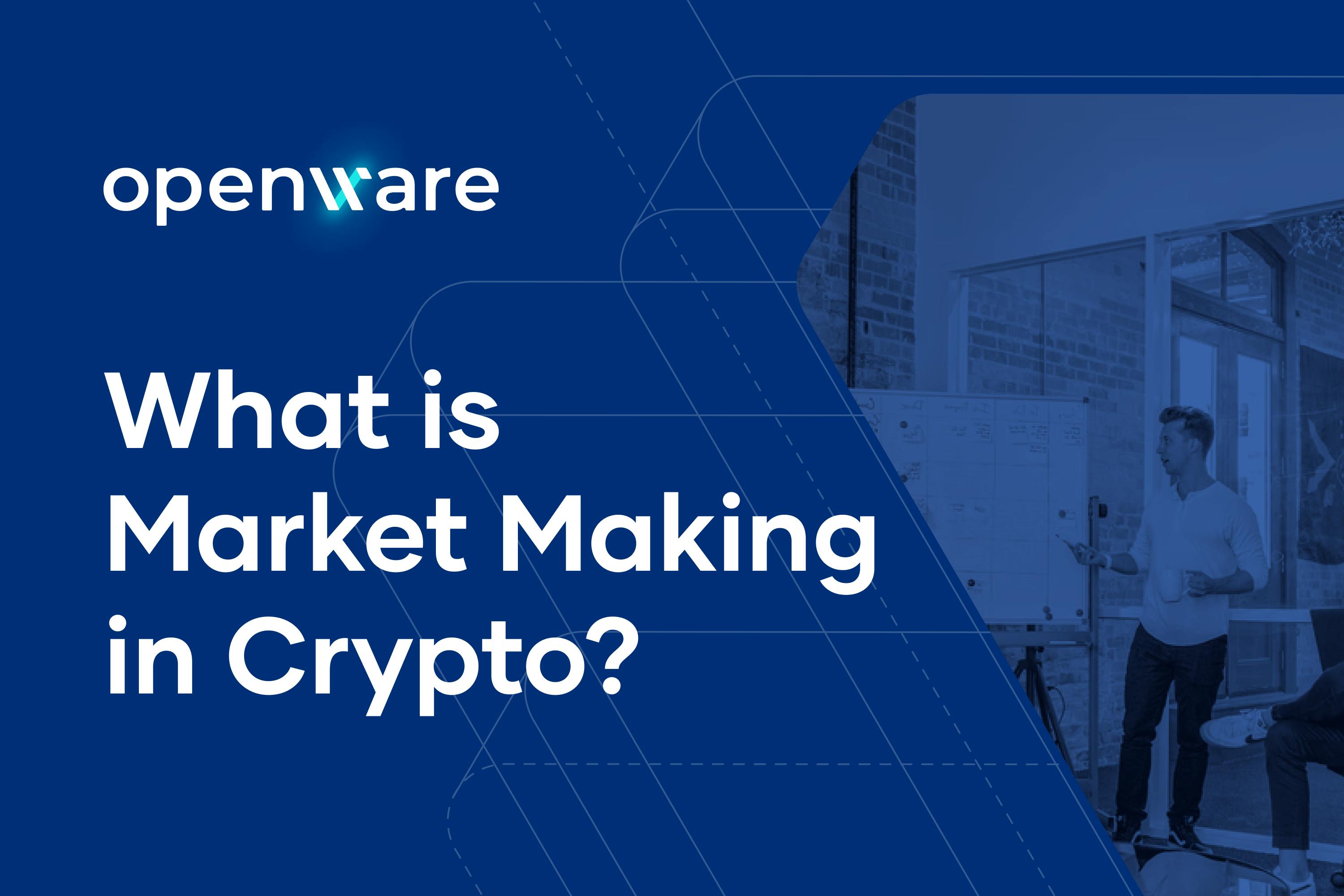
What is Market Making in Crypto?
Market making in crypto involves the process of buying and selling large amounts of a particular asset to facilitate liquidity and ensure the smooth running of financial markets. Read on here to learn more about how market making works and the benefits it brings to the crypto market.
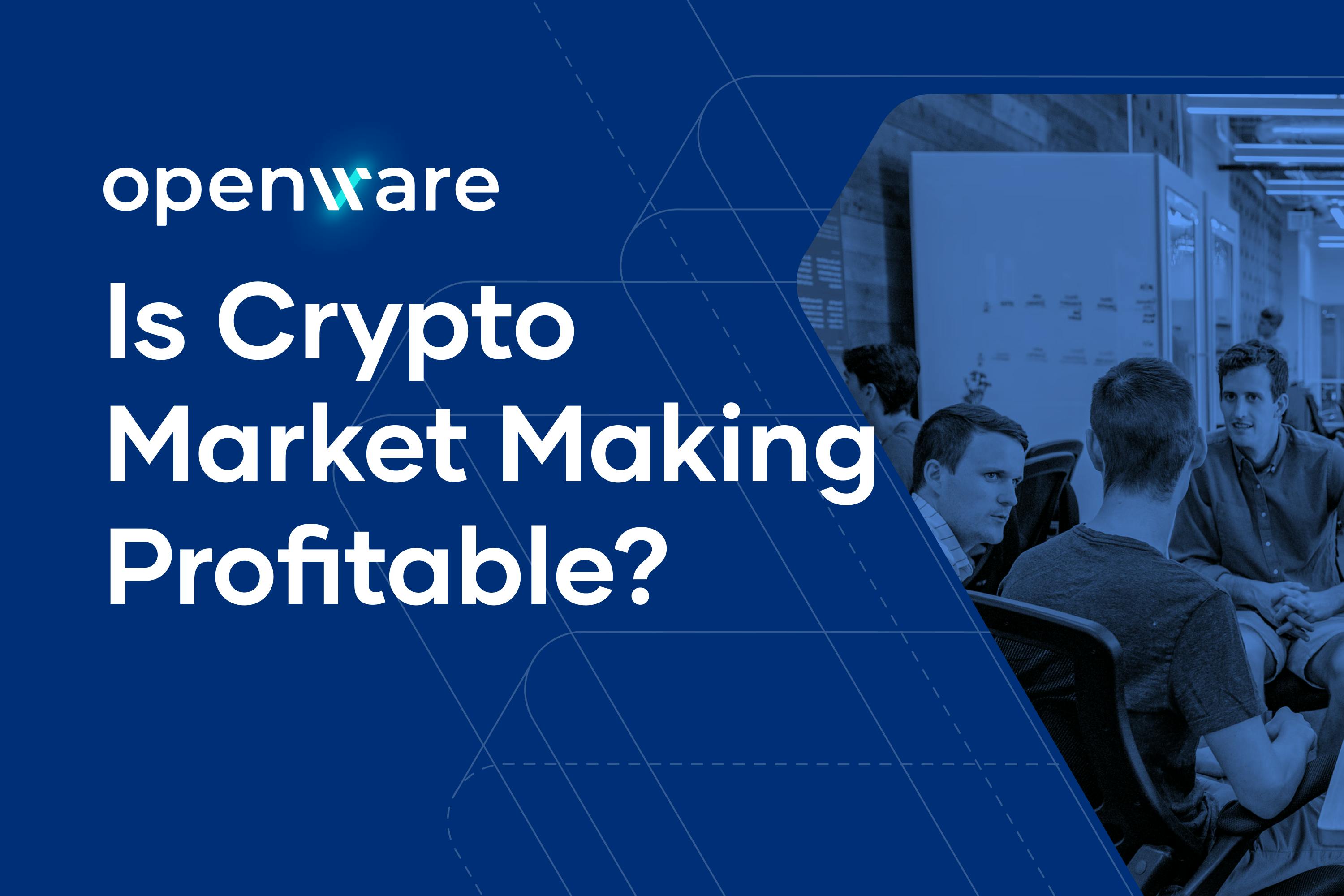
Is Crypto Market Making Profitable?
Market makers play an all-important role in ensuring the proper functioning of the crypto market, which can be quite a profitable venture, as market makers take a small profit off each trade that’s placed. Read on here to learn more about how crypto market makers get profits.

interoperability: Connecting Different Blockchain Networks
Blockchain interoperability is the ability of different blockchain systems to interact, share information, and conduct transactions with one another.

Developing Hybrid Crypto Exchanges: Combine the Best of Centralized and Decentralized Worlds
Hybrid cryptocurrency exchanges blend the security and control of decentralized platforms with the liquidity and accessibility that come with centralized ones, each model offering their best in a truly secure and efficient way.

The Environmental Impact of Cryptocurrency Mining
An analysis of the environmental impact of cryptocurrency mining, covering energy consumption, carbon emissions, and sustainable solutions like Proof-of-Stake and renewable energy.

How to Build a Secure Crypto Wallet
A comprehensive guide to building a secure crypto wallet, including critical security features, best practices, and advanced measures for safeguarding digital assets from potential threats.

Emerging Trends in Crypto Asset Management
The current landscape of crypto asset management is a dynamic one, characterized by rapid technological advancements, evolving market conditions, and a growing array of investment options.

The Future of Blockchain in Global Finance

The Impact of Quantum Computing on Blockchain Technology
Explore the impact of quantum computing on blockchain technology, explore quantum-resistant solutions, and learn essential steps to mitigate future risks.

Building Decentralized Communities: Best Practices
Decentralized communities are the exact opposite of centralized organizations at their very roots: they are self-governed by members, with all decisions being distributed to a very broad network of participants.

Fundamental Analysis in Crypto: Evaluating Projects and Tokens
Fundamental analysis is the process of looking at the foundation and general structure of a house for a possible purchase.

Layer 2 Solutions: Scaling Ethereum and Beyond
We cover the different types of Layer 2 solutions, benefits, issues, and potential use cases below, explaining how they change the world of Ethereum while enabling more comprehensive blockchain implementation.

The Impact of Regulatory Changes on Crypto Markets

Enhancing User Experience in Crypto Trading Platforms
User experience in the context of crypto trading platforms encompasses all aspects of the user's interaction with the platform. This includes the ease of navigation, the design aesthetics, the performance and speed of the platform, the security measures in place, and the quality of customer support.

The Future of DEXs (Decentralized Exchanges)
Explore developments, benefits, challenges of DEXs, innovations, and governance models, as well as future trends.

Developing Secure Crypto Trading Platforms: Best Practices
Explore practices for the development of secure crypto trading platforms to protecting users' funds, maintaining data integrity, and fostering trust in the digital asset ecosystem.

Integrating Payment Solutions in Crypto Trading Platforms
This article explores various types of payment solutions, the integration process, regulatory issues, and future trends in the industry.

Algorithmic Trading in Crypto: How It Works and How to Start
Dive into the mechanics of algorithmic trading and explore how you can start your journey in this exciting domain.

The Role of Cryptography in Securing Blockchain Networks
Explores the critical role of cryptography in securing blockchain networks.

Blockchain Security: Common Threats and Mitigation Strategies
Blockchain security isn't just about protecting digital assets; it's about maintaining trust in the entire ecosystem.

The Rise of Decentralized Autonomous Organizations (DAO)
DAO, or Decentralized Autonomous Organization, is an entity that operates through smart contracts on a blockchain without centralized control.
What is Yield Farming and Liquidity Mining in DeFi?
This article looks at the mechanisms, benefits, and intrinsic risks of yield farming and liquidity mining.

Smart Contracts: Revolutionizing Agreements in the Digital Age
Smart-contracts with the terms of the agreement directly written into code have the potential to revolutionize numerous industries by automating and securing complex processes.

The Evolution of Consensus Algorithms: From PoW to PoS and Beyond
Explore the evolution of blockchain consensus algorithms from Proof of Work to Proof of Stake and beyond, covering emerging trends and future innovations.

How Crypto Futures Trading Works?
A futures contract is a standardized agreement to buy or sell an asset at a predetermined price at a specified time.

What are Iceberg Orders in Crypto Trading?
Iceberg orders are designed to execute large trades by breaking them into smaller, more manageable chunks, which are then hidden from the public order book.

How Crypto Spot Trading Engine Works?
Spot trading engine is a critical component that ensures seamless transactions.

Navigating the Risks and Rewards of Liquid Staking
Explore liquid staking's benefits and drawbacks and guide how to mitigate risks and maximize returns.

The Ethics of Market Making in Cryptocurrency Trading
Explore the benefits, challenges, and ethical considerations market makers must navigate to ensure a fair and transparent trading environment.

Exploring the Global Impact of Crypto Market Making
This article explores the global impact and intricate details of crypto market making.

Advantages of OTC Trading in Crypto
Trading cryptocurrencies over-the-counter (OTC) has taken off in the crypto market. It's great for traders and investors because it's a direct way to swap cryptocurrencies between two parties without needing an extensive exchange to oversee everything.

The Role of AI in Crypto Market Making
By integrating AI into their operations, crypto market makers can improve risk management, optimize trading strategies, and enhance efficiency.

Algorithmic Trading in Crypto Market Making
Algorithmic trading has become increasingly prevalent in the crypto market. It involves automated systems executing trades based on predefined rules and strategies.

The Role of Market Making in the Stability of Crypto Markets
Market makers are essential participants in the cryptocurrency markets as they help provide liquidity and stabilize prices.

Retrodrops vs. Airdrops: What are Those, and What is the Difference?
Airdrops and retrodrops have emerged as pivotal strategies for projects to engage and reward their communities.

Strategies for Effective Crypto Market Making
As the crypto markets continue to develop and grow, it has become increasingly important for traders, investors, and other market participants to comprehend the strategies and techniques required for successful crypto market making.

Market Making and the Future of Cryptocurrency Exchanges
Explore the concept of market making, its mechanisms, and its significance in cryptocurrency trading. It will also delve into this space's challenges, opportunities, and future trends.

Decentralized Versus Centralized Crypto Exchange
There are two main types of crypto exchanges: centralized and decentralized exchanges. Make sure you understand what each of these platforms offer before you start trading on them. This article offers a detailed comparison of decentralized versus centralized crypto exchanges.

How to Buy Crypto on a Decentralized Exchange
Buying crypto on a decentralized exchange isn’t a complicated process, especially if you’ve used centralized exchanges in the past. But if you’d like a step-by-step guide on how to make your first purchase on a DEX, read on here.

How to Create Your Own DEX
With a decentralized platform (DEX), you can launch new tokens, allowing users to interact with numerous DEXs and dApps on various networks. But creating a DEX from scratch can be cumbersome and resource-intensive. Luckily, it is possible to avoid the complex backend development process by using a reliable decentralized exchange Web3 development platform like OpenDAX.
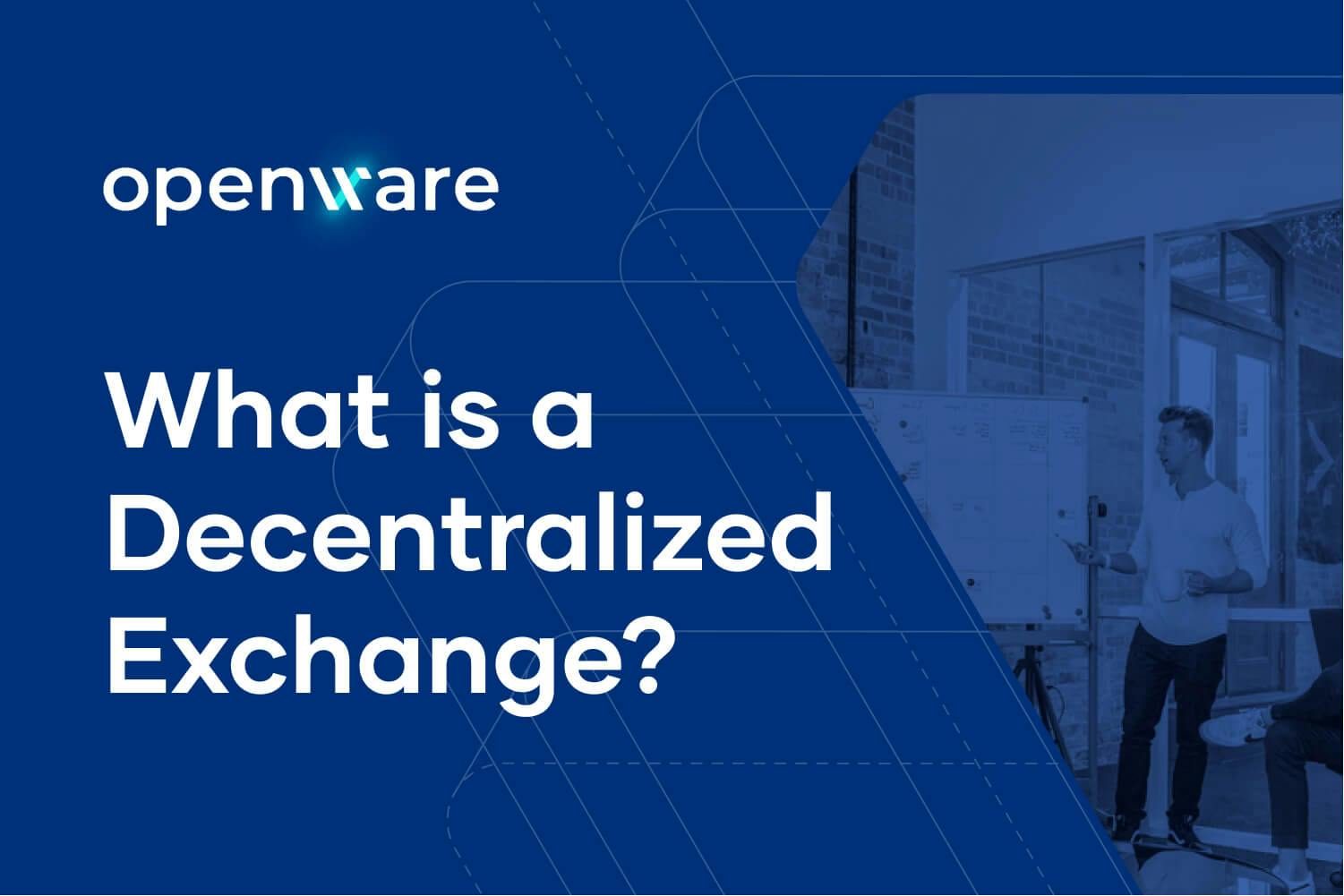
What Is a Decentralized Exchange?
A decentralized exchange (DEX) is an exchange that's designed to allow cryptocurrency traders to transact directly without intermediaries. In short, it is a peer-to-peer platform where users transact in a non-custodial manner.
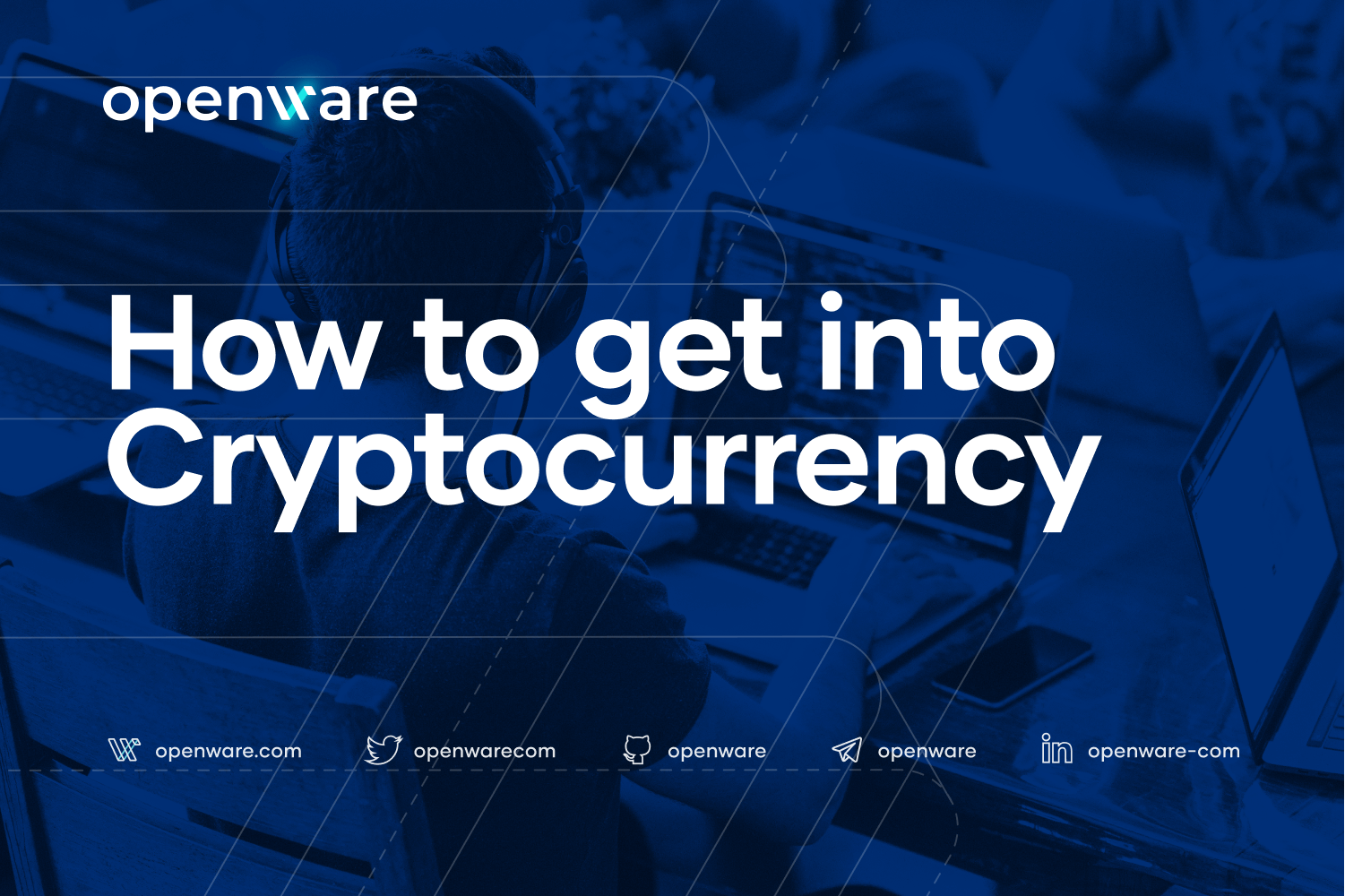
How to Get into Cryptocurrency
Cryptocurrency has been the breakthrough industry of the century, and it has led experts to predict that crypto and it's underlying blockchain technology will disrupt many industries, including finance and law. But its complexity can be a hurdle for new investors. What exactly is a cryptocurrency, and how can new investors join the industry?
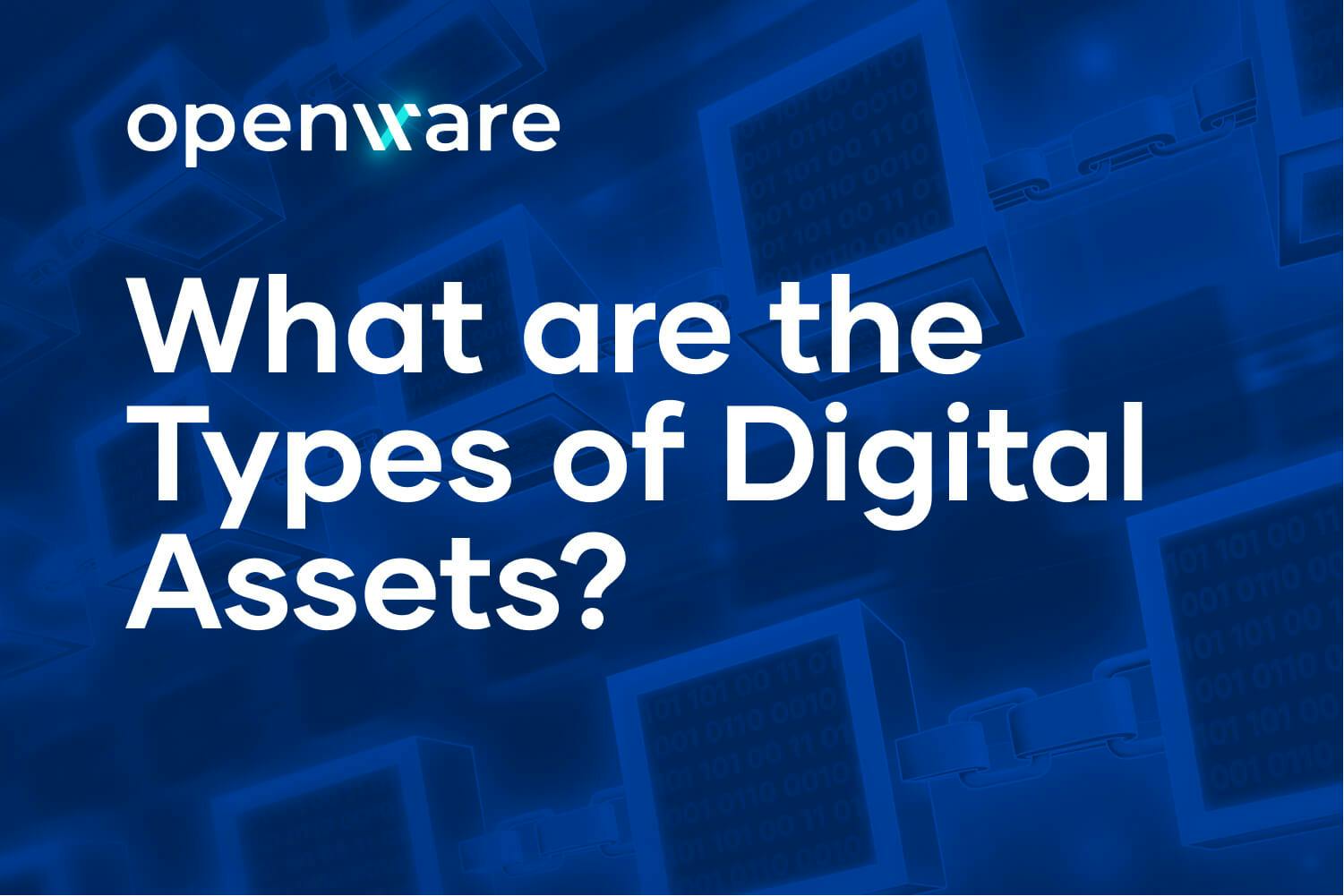
What Are the Different Types of Digital Assets?
Digital assets have become almost synonymous with cryptocurrencies, and although cryptocurrencies are a type of digital asset, the latter is a much broader concept. As more people and investors are drawn toward digital assets, it is important to understand what digital assets are and how cryptocurrencies fit into this broad class.

What Are the Three Main Types of Crypto Exchanges?
When it comes to trading cryptocurrencies, there are three main forms of exchange—centralized, decentralized, and hybrid. We cover the details you need to know.

How Do I Make A Crypto Exchange Site?
When it comes to making your own crypto exchange site, white label solutions like OpenDAX help you avoid the challenge involved in the website development and speed up your launch time.
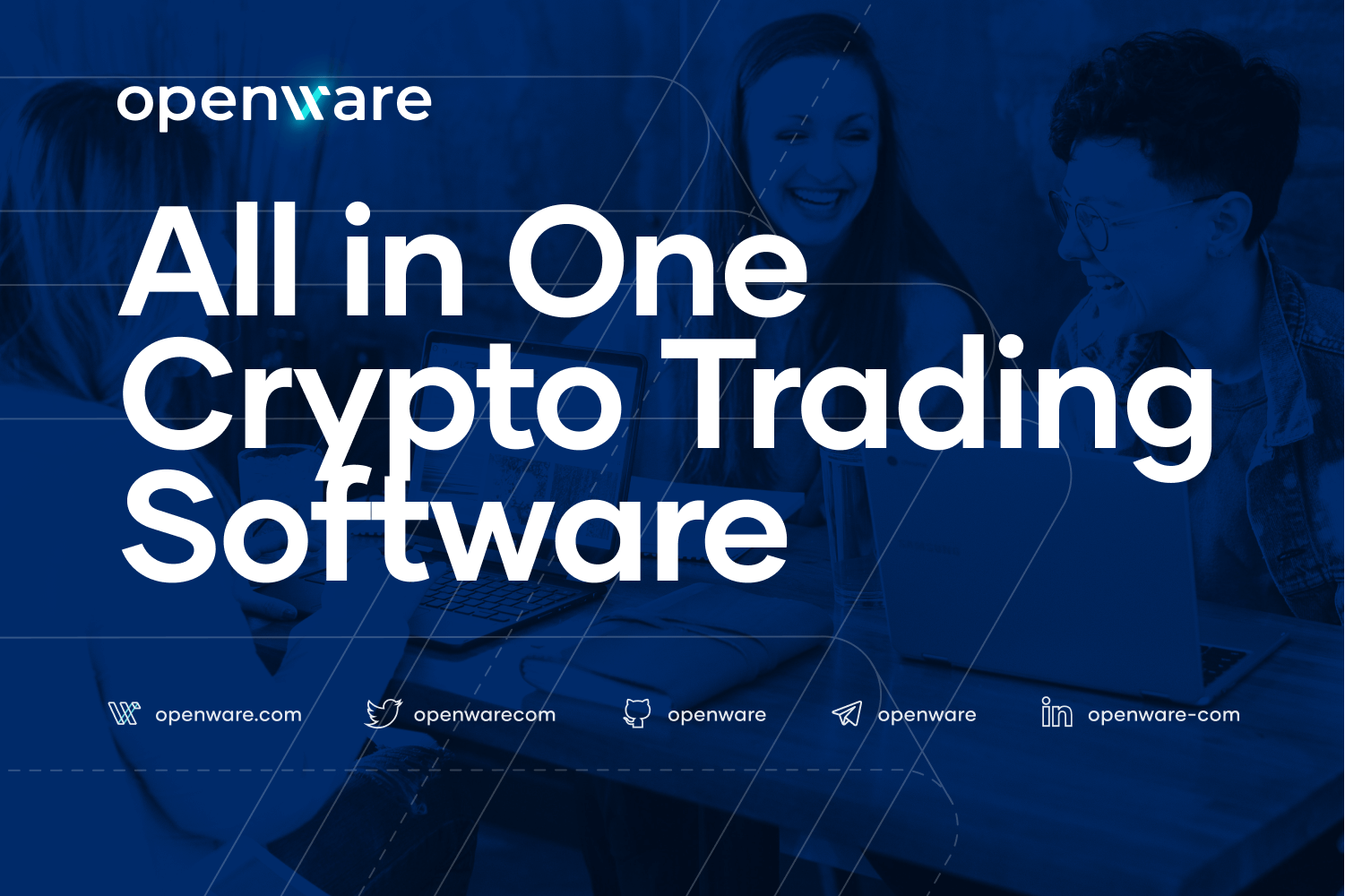
All-in-One Crypto Trading Software
An all-in-one crypto trading software integrates multiple exchanges, including top crypto exchanges like Binance Chain, Huobi, and Bitfinex. This allows users to place their buy and sell orders on the platform without needing to open an account across all the crypto exchanges.
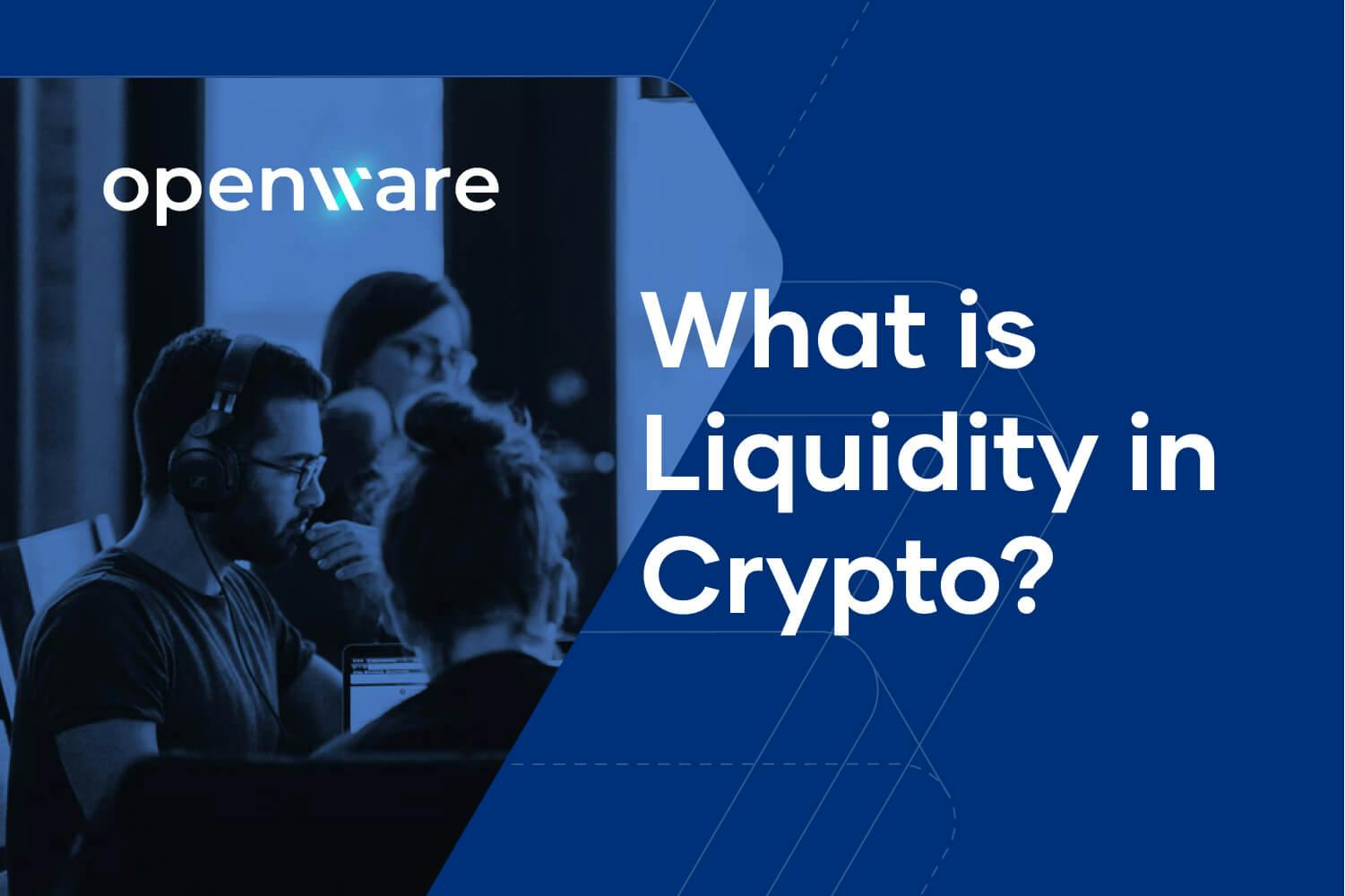
What Is Liquidity in Crypto?
Liquidity in cryptocurrency markets is often used to describe the ease with which a crypto asset (like Bitcoin or Ethereum) can be swapped for other tokens or converted into fiat currencies. In simple terms liquidity shows how quickly and easily an asset can be bought or sold.

What Is Arbitrage Trading in Crypto?
Arbitrage trading involves buying a crypto asset on one exchange and selling it immediately on another exchange at a significantly higher price.
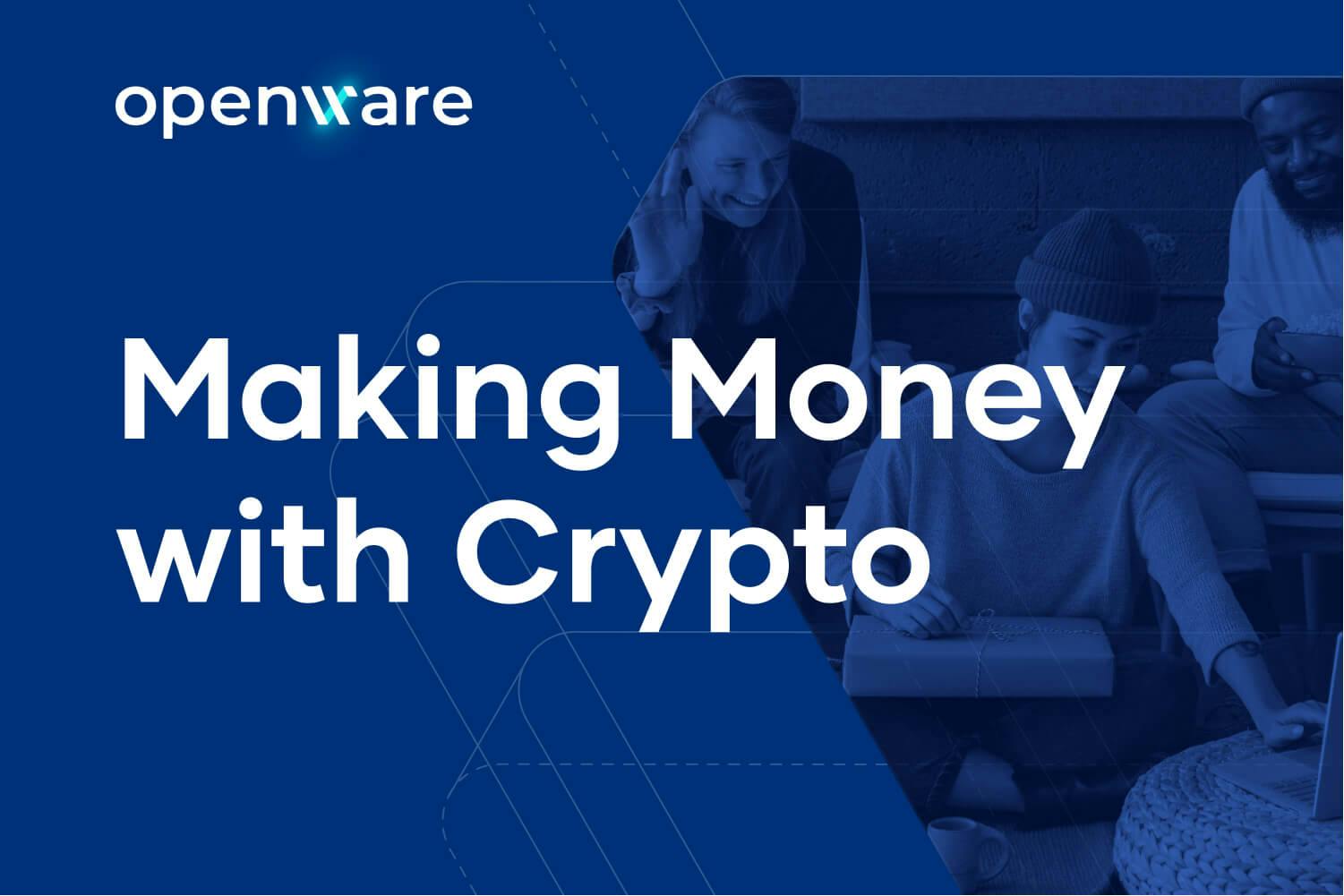
Making Money With Crypto
When it comes to making money with crypto there are several common options, such as: trading, investing early in new projects, mining, market making, and yield farming. Read on here to learn more about the details of each.
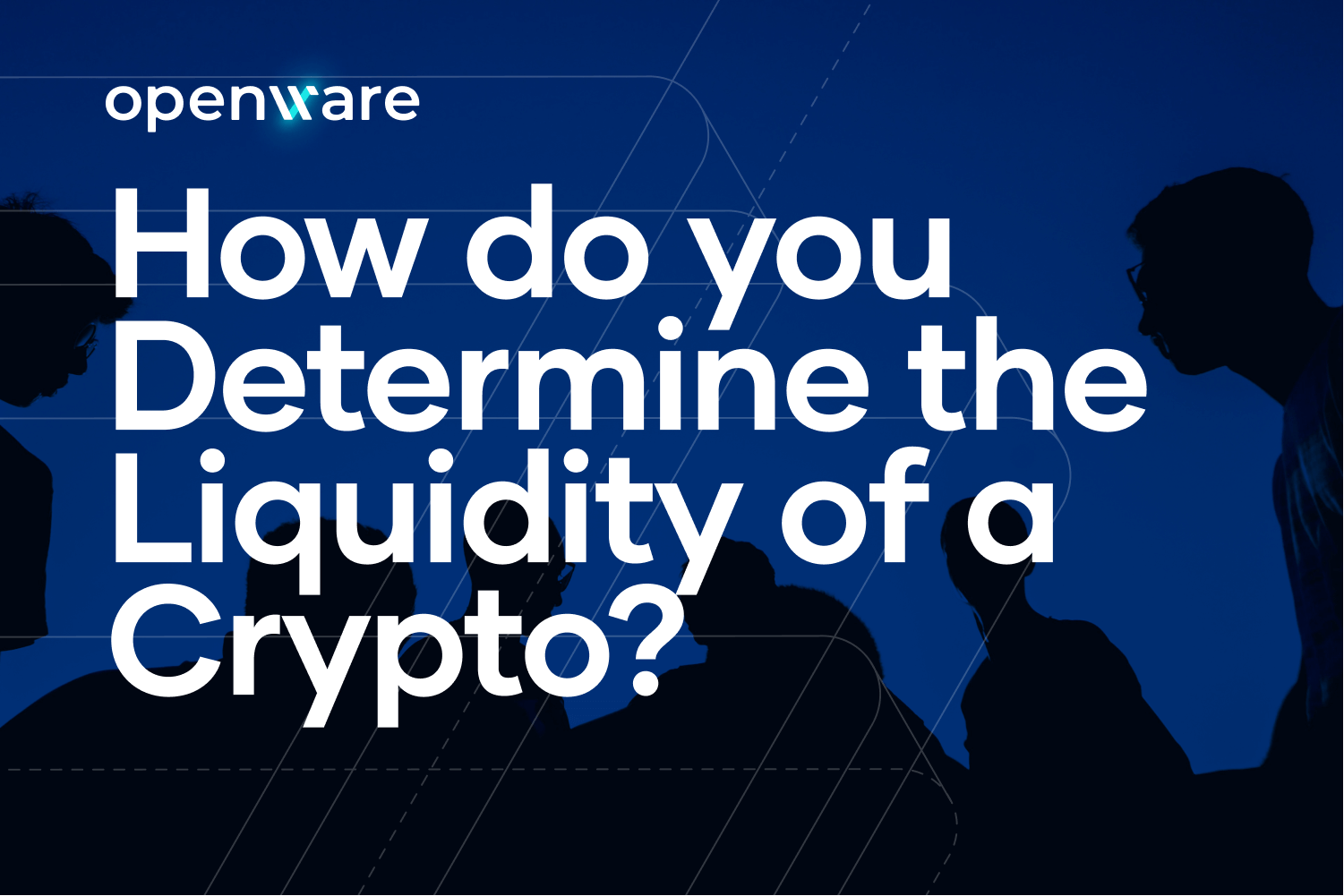
How Do You Determine the Liquidity of a Crypto?
When it comes to crypto projects, the availability of liquidity is often correlated to how popular the project is. If you're curious to learn more about crypto liquidity and how to determine it, read on here.

Automated Market Making in Crypto
Automated market making is an integral part of the success of the DeFi space, revolutionizing traditional finance systems by introducing massive levels of flexibility in the domain of crypto trading.

Are Decentralized Exchanges Truly Decentralized?
Whether an exchange is truly decentralized is a legitimate concern because some crypto exchange platforms claiming to be decentralized are not, since they continue to use third-party accounts as a way to hold funds during transactions. In this article we'll discuss the different levels of decentralization a crypto exchange may have.
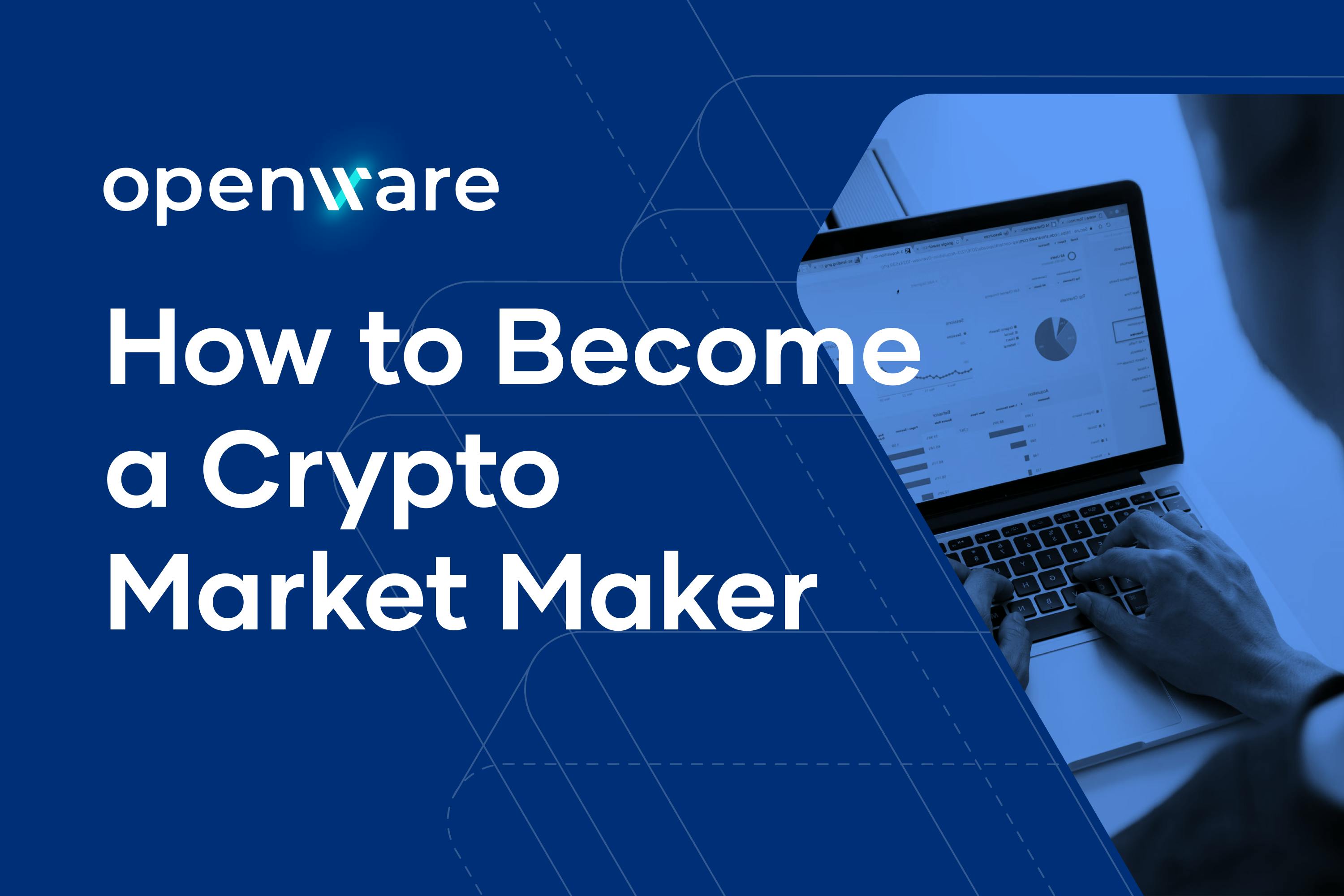
How to Become a Crypto Market Maker
Crypto market makers provide a key service to the active traders by ensuring there is liquidity in the market and that orders are instantly filled, and as a result of their service, can make a healthy profit off the price spread of each trade. Read on here to learn the steps you’ll need to take to become a market maker.
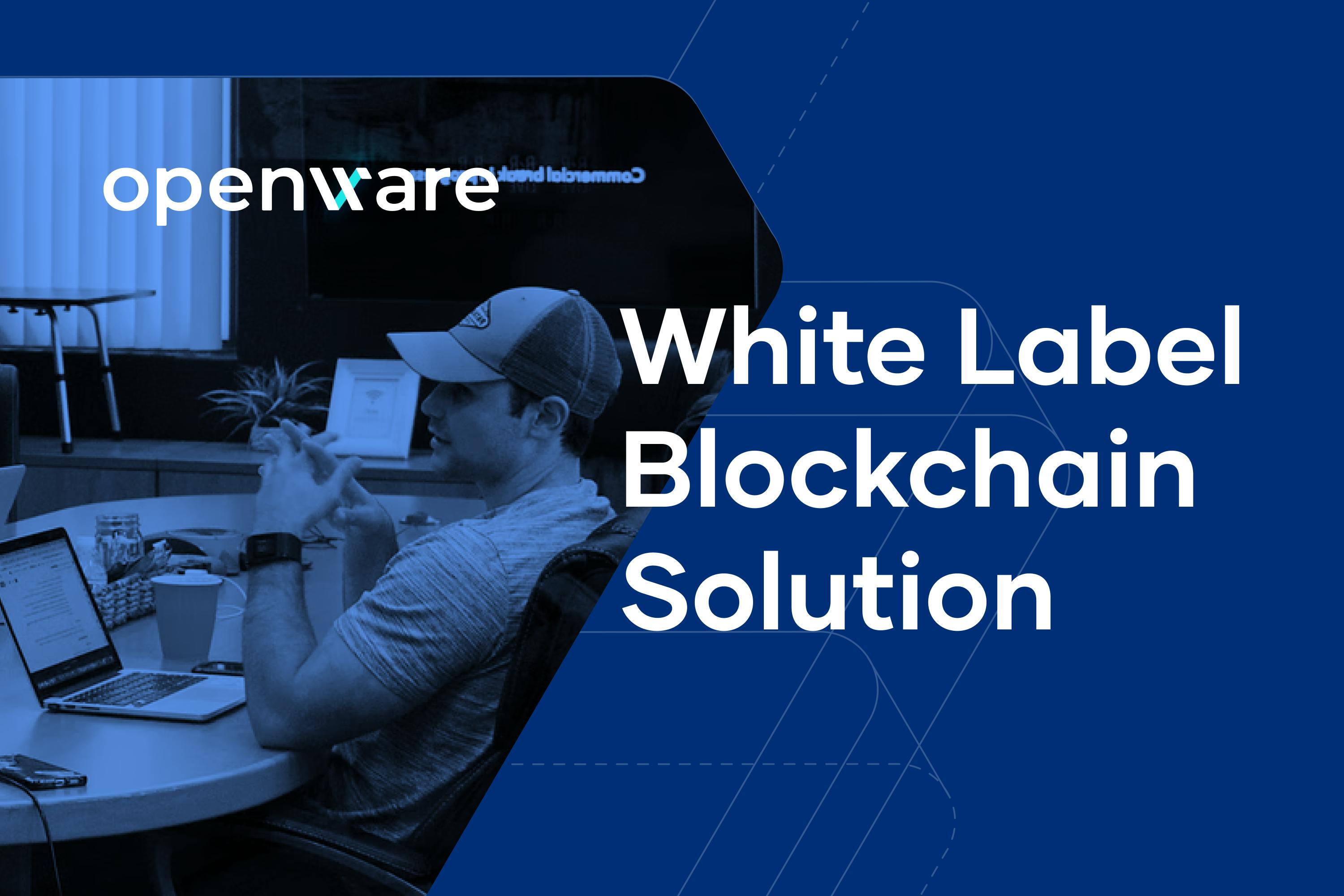
Working with White Label Blockchain Solutions
White label blockchain solutions are the way to go for businesses looking for a near-instant blockchain application. After choosing a blockchain application and a white label provider, all you need to do is customize the software to suit the specification of your business.
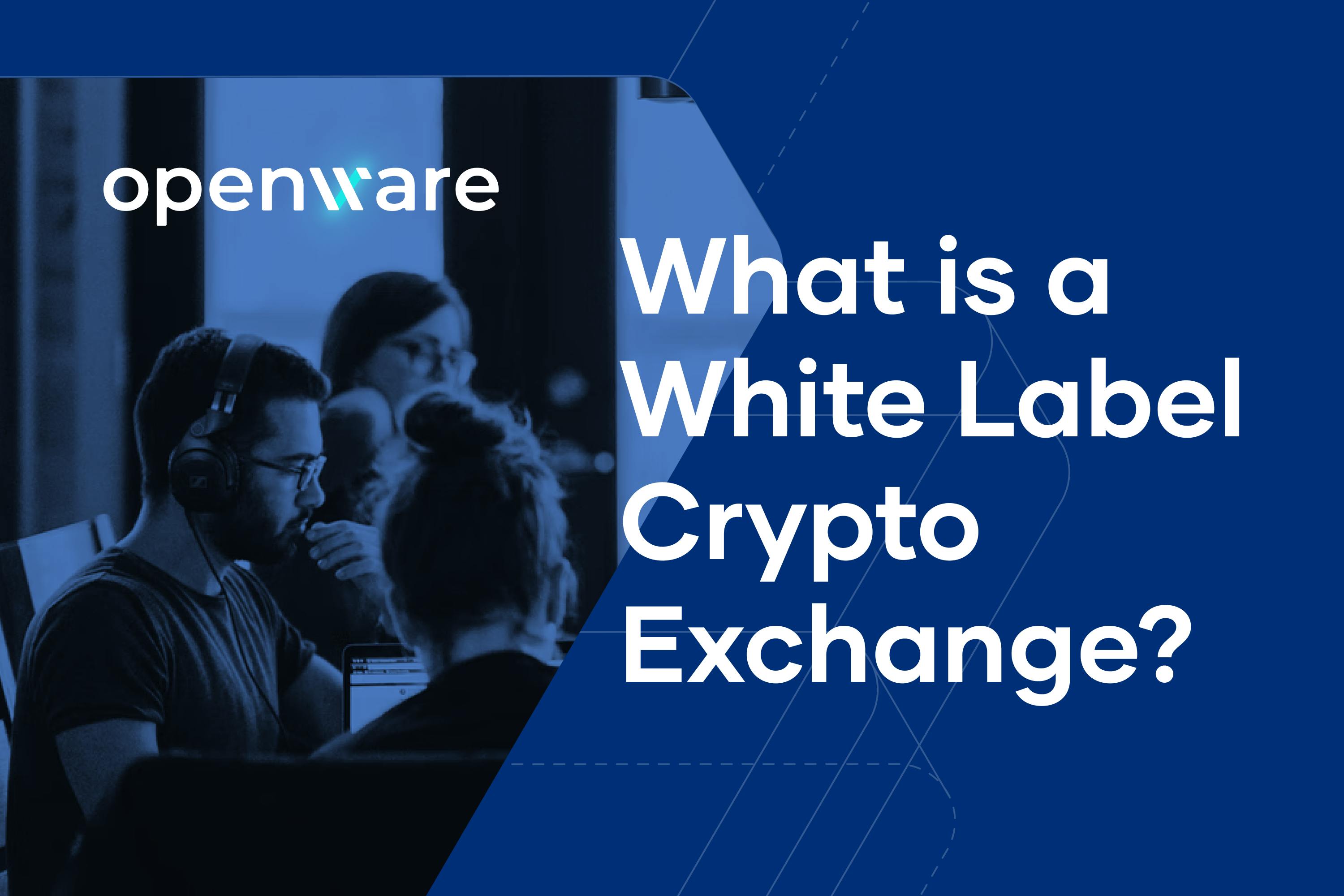
What is a White Label Crypto Exchange?
A white label crypto exchange is a pre-developed protocol that allows businesses to create customizable exchange platforms. White label cryptocurrency exchanges offer features ranging from buying and selling crypto to fiat-crypto conversion, trading, staking, and holding cryptocurrencies. In addition, these solutions can be customized based on the requirements of the business.
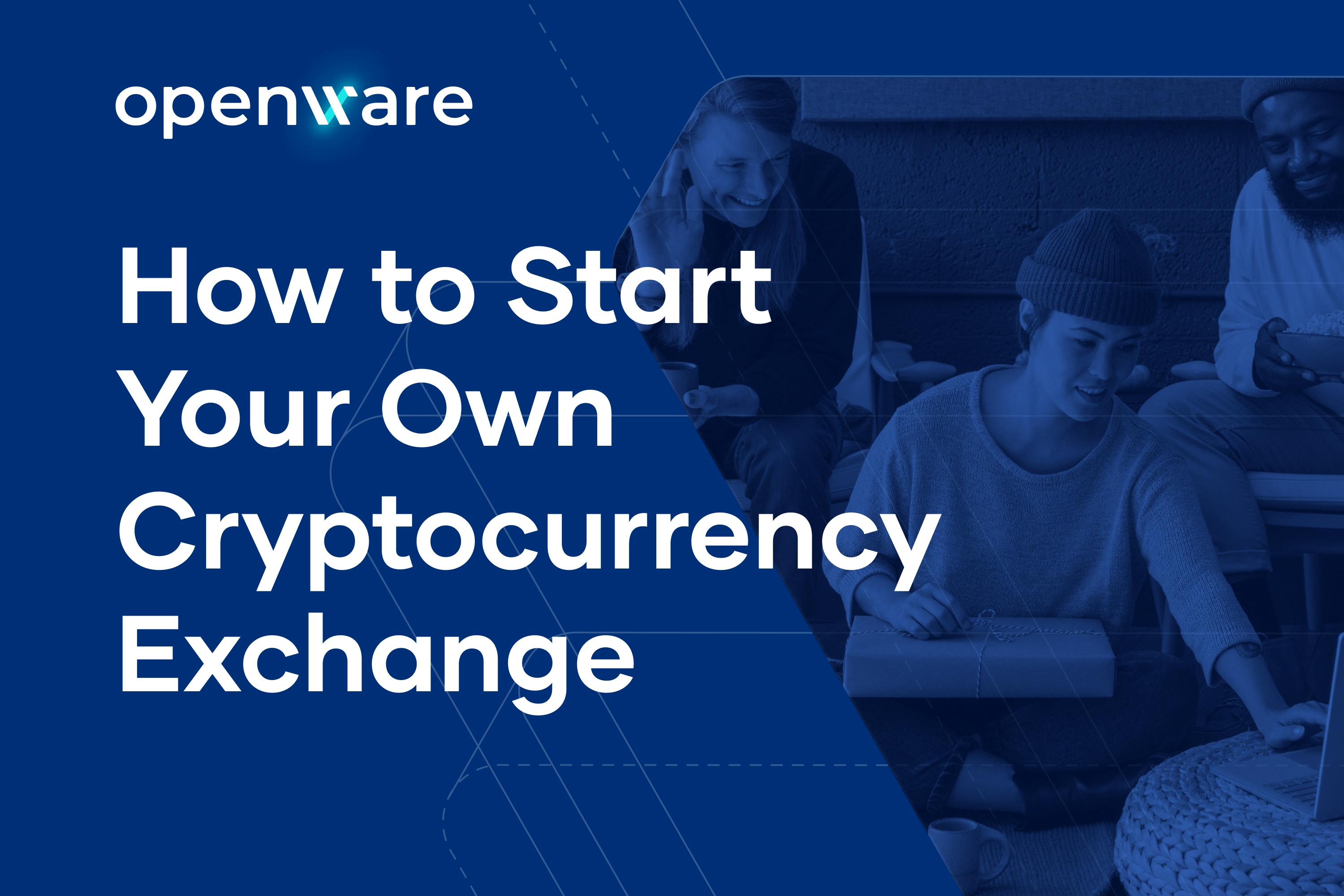
How to Start Your Own Cryptocurrency Exchange
Looking to start your own cryptocurrency exchange? We cover the main areas of importance you’ll need to sort out when going through the process; from deciding on the type of exchange you want, to obtaining legal counsel.
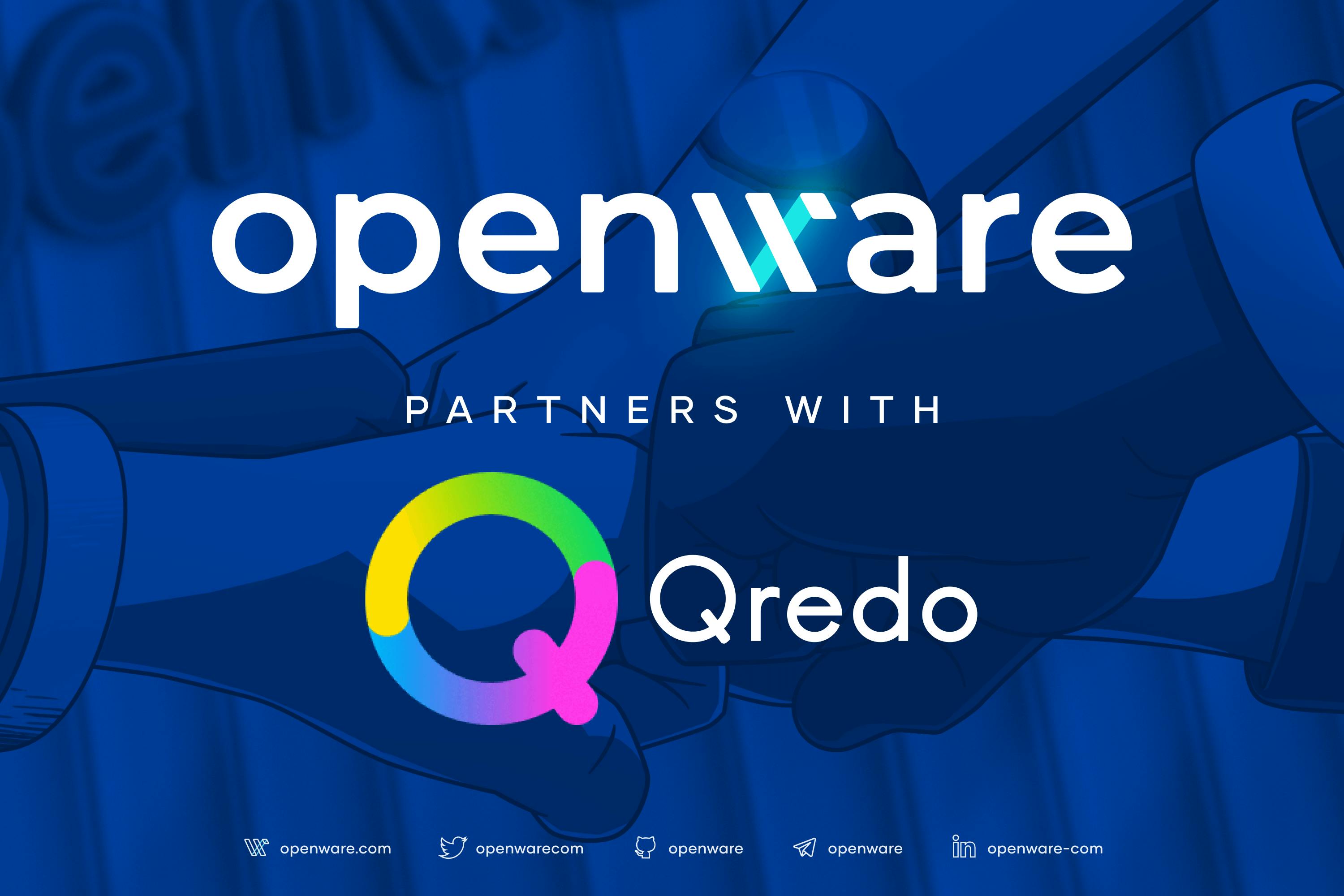
Openware Partners with Qredo to Power Crosschain Settlement on the Yellow Network
Qredo's crosschain infrastructure will power the exchange of trading quotes and liquidity between exchanges and institutions on Yellow Network

How To Deploy OpenDAX3 On Digital Ocean
In this tutorial, we will deploy OpenDAX3 - an open-source cloud-native cryptocurrency exchange software platform on the Digital Ocean cloud.

How To Deploy OpenDAX3 On AWS
Hello, everyone! In this tutorial, we will deploy OpenDAX3 - an open-source cloud-native platform on the AWS cloud.

What Is the Internet of Things IoT and How Secure Is It
The “Internet of Things” (or “IoT”) essentially consists of devices with an Internet connection that can collect, process, and share information with each other through wired or wireless networks.

Gnosis Prediction Ecosystem in 2021
Gnosis is a market prediction ecosystem that provides an open-source framework for prediction markets built on Ethereum.

Scrypt with a dash of Salt
Since its humble beginnings, cybersecurity has been tasked with beating the collective genius of individuals whose sole purpose is to break things.

Shamir Secret Sharing and Quantum-resilient crypto keys
Standard blockchain-based solutions for cryptocurrency, tokenized assets, and data encryption use a single private cryptographic key assigned to the transaction creator.
Tutorials

How To Deploy OpenDAX3 On Digital Ocean
In this tutorial, we will deploy OpenDAX3 - an open-source cloud-native cryptocurrency exchange software platform on the Digital Ocean cloud.

How To Deploy OpenDAX3 On AWS
Hello, everyone! In this tutorial, we will deploy OpenDAX3 - an open-source cloud-native platform on the AWS cloud.